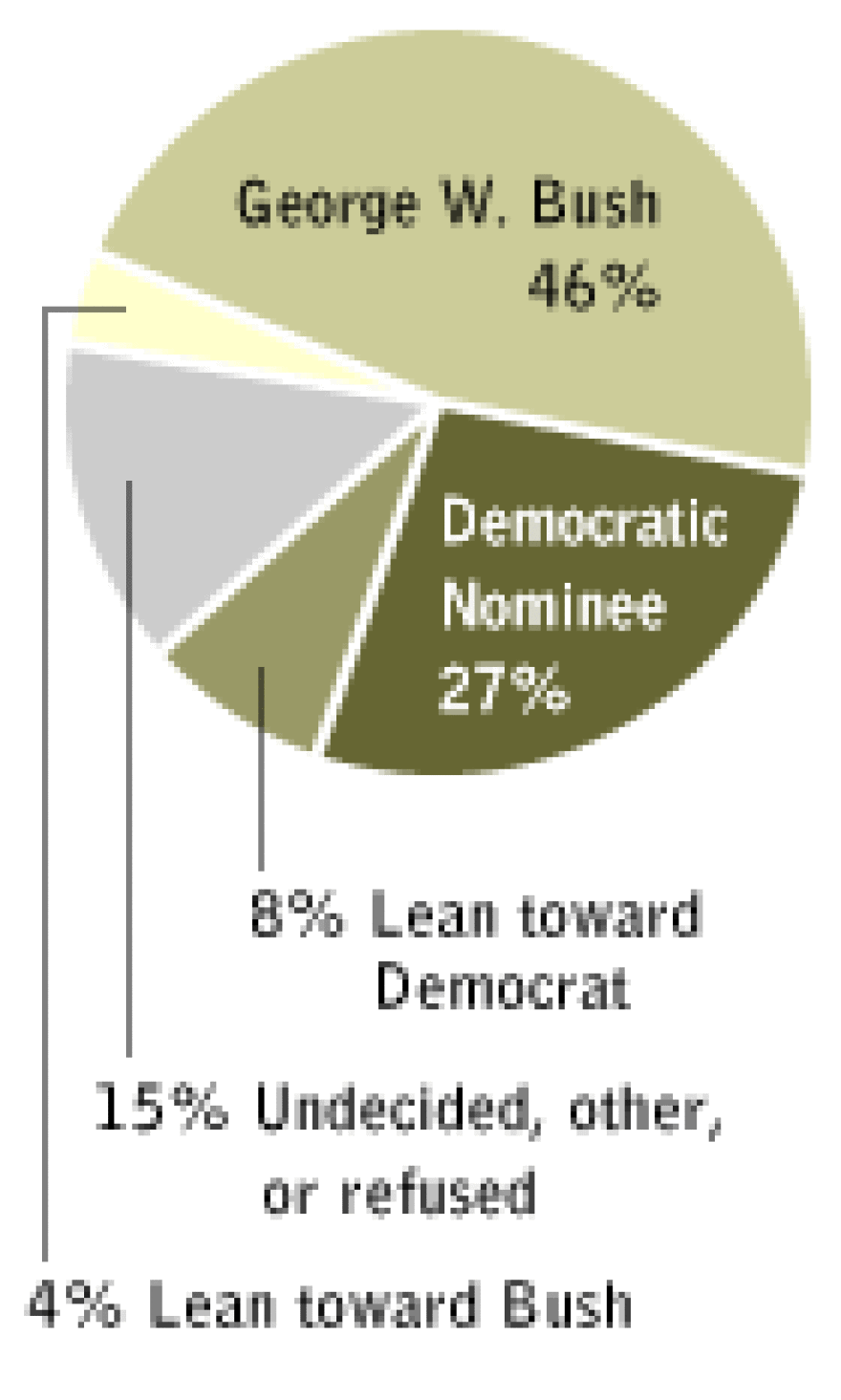

Slightly more than half of voters likely to participate in the 2004 presidential election think the country is headed in the right direction, and 66 percent approve of the job President Bush is doing, according to a new poll for NPR. And voters are focusing more on the U.S. economy now that the war with Iraq is over, the survey shows.
"It tells you, I think, that Americans are feeling more secure after the resolution of the war. And in some ways that's kicking up concerns and focus on the economy," says Republican pollster Bill McInturff, who conducted the survey jointly with Democratic pollster Stan Greenberg. NPR's Mara Liasson reports on the poll results for Morning Edition.
Fifty-eight percent of the respondents said the world is becoming more dangerous for Americans, while 17 percent said it was becoming safer. That's an improvement from March, when 71 percent said it was more dangerous and only 11 percent said safer. When asked what concerned them more -- the threat of terrorism or the slowdown of the economy -- 68 percent chose the economy and 28 percent pointed to terrorism.
Greenberg says the voters' doubts about Mr. Bush's ability to get the economy moving again provide Democrats a potential opening in the coming election. But McInturff points to an important factor in the president's favor: while 66 percent approve of his performance, 44 percent approve of it very strongly. Personal support for Mr. Bush could allow the incumbent president to defy the traditional rules of politics and win reelection even in a bad economy, the Republican pollster says.
Methodology
The national survey was conducted by Public Opinion Strategies and Greenberg Quinlan Rosner Research May 27-29. All participants were registered voters who voted or were ineligible to vote in the 2000 presidential election or who voted in the 2002 congressional elections and indicated they were "almost certain" or "certain" to vote in 2004. Potential respondents were selected by random digit dial methodology. The sample size for the latest survey was 723 registered likely voters with a margin of error of plus or minus 3.64 percent.
Copyright 2022 NPR. To see more, visit https://www.npr.org.



